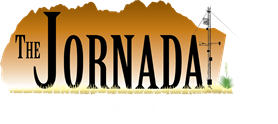| Title | The role of microbes in resource management in arid ecosystems |
| Publication Type | Conference Proceedings |
| Year of Publication | 1995 |
| Authors | McCaslin BD, Barrow J.R. |
| Conference Name | Wildland Shrub Symposium |
| Pagination | 22 |
| Date Published | May 23-25, 1995 |
| Abstract | Fungal root endophytes similar to ones found in native grasses and shrubs in the arid southwest, also colonize alfalfa. Data show that these organisms regulate nutrient uptake in alfalfa by enhancing phosphorus uptake at low concentrations and restrict uptake at thigh concentrations. When external carbon was available the fungi were pathogenic to the host. Without external carbon, they were dependent upon the host and formed an endophytic association. Evidence suggests that host-microbe interactions play a major role in plant response to environmental stresses such as nutrient extremes, salinity, drought, and disease. It appears that these host-microbe associations have evolved to insure the management of vital resources for maintaining efficient healthy host plants for carbon production as a source of energy for the fungi. The conservative management of essential nutrients and water by the entophyte in arid ecosystems is crucial for survival of native plants. However, when arid ecosystems area converted to cropping systems, where nutrients and water are supplemented, the conservative regulation of nutrients and water by the fungi is likely to effect plant nutrition, disease expression, and response to environmental stress. |
| URL | files/bibliography/95-ShrubSymp-Barrow.pdf |


